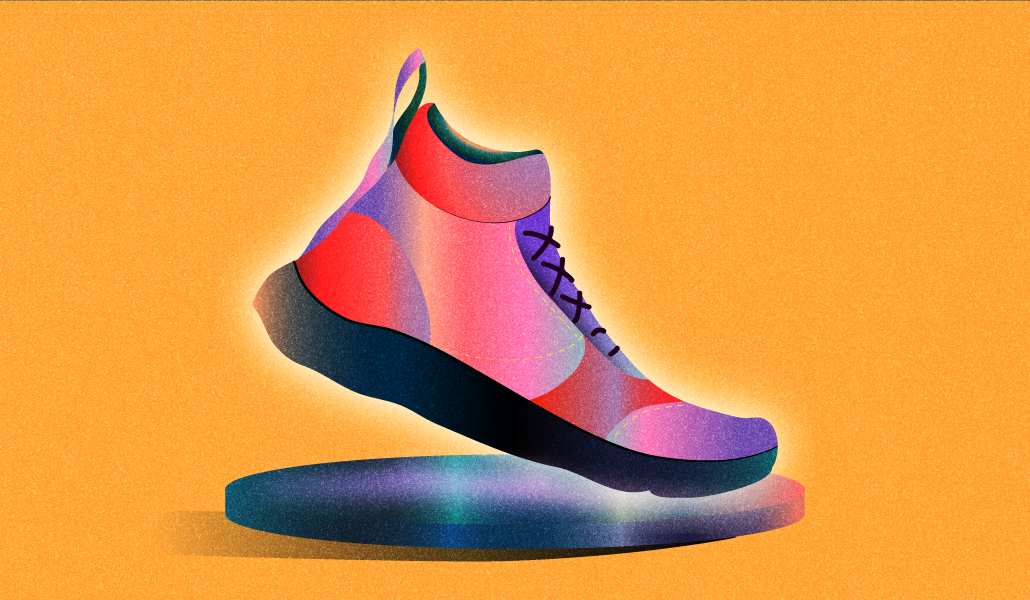Athletic retailers like Foot Locker and Dick’s Sporting Goods are taking a hit from markdowns

While some retail categories have begun to keep inventories slim and minimize markdowns, athletic retailers’ bottom lines continue to take a hit.
Foot Locker’s net income plummeted to $28 million in the third quarter, compared to $96 million the previous year mainly due to heavy discounting to clear out excess inventory. Dick’s Sporting Goods, on the other hand, saw a 12% drop. Last quarter, Dick’s profits also dropped 23% partly due to high levels of promotions as well as theft.
Athletic goods and apparel were one of the categories significantly impacted by the softness in consumer spending. But while other categories like apparel have begun to rebound, athletic retailers continue to lag. Managing inventories during this time of the year is especially crucial as retailers prepare to haul in seasonal items.
“We’re using our promotional engine and demand creation to continue to liquidate through inventory that needs a little bit of help and a little bit of encouragement with consumers,” said Frank Bracken, chief commercial officer at Foot Locker Inc., said during the company’s earning’s call on Wednesday. “We’ve also been able to secure some additional vendor support on the back end, which gives us confidence that we are going to, in fact, deliver against our end-of-year inventory targets and start off [2024] from a position of strength.”
By the end of the third quarter, Foot Locker’s inventory was 10.5% more than last year. Meanwhile, Dick’s Sporting Goods’ inventory declined by just 2%. Dick’s said its inventory is well-positioned for its holiday assortment. Dick’s said during its earnings call that the quarter was more promotional than anticipated.
Sales this quarter were also soft for both retailers. Foot Locker’s total sales decreased by 8.6% to $2.18 billion compared to last year. Meanwhile, Dick’s reported a modest 2.8% sales growth to $3.04 billion in the quarter.
R.J. Hottovy, head of analytical research at Placer.ai, said that retailers reported athletic apparel being in high demand during the pandemic. Athletic products that people bought in recent years haven’t quite hit their replacement cycle just yet, he said.
Ad position: web_incontent_pos1
“Consumers really bought a lot of athletic apparel during the pandemic, and they’re maybe not quite ready to replace that,” Hottovy said. “We’re still a little early in terms of replacement cycles coming out of the pandemic.”
Inventory shrink alongside the promotional activity has also impacted their margins. Foot Locker’s gross margin declined by 470 basis points from the prior year, while Dick’s gross margin took a 0.5 percentage point cut.
“As our gross margin materialized through the quarter, we were slightly more aggressive in terms of moving stuff out, but the environment was slightly more promotional than we had originally expected,” Lauren Hobart, Dick’s Sporting Goods CEO, told analysts during the call. “But generally speaking, we were decisive just to keep the stores clean.”
Both retailers, however, were generally optimistic about how younger brands like Hoka and On could bring in new customers. Foot Locker said that On is now in 420 doors — well ahead of its plans to add the brand to 350 doors this year. Hoka has also been added to 50 doors since the last quarter.
The companies were also bullish about the expansion and updates to their store fleets. Foot Locker opened or converted 13 new Foot Locker Community and Power stores across the world in the third quarter with new formats, now representing 13% of its global square footage. Dick’s added two new House of Sport locations early into the third quarter. Foot Locker also closed 14 underperforming stores this quarter.
Ad position: web_incontent_pos2
Placer.ai’s Hottovy said that these concept stores are resonating with shoppers. “We continue to have some really promising results based on our visitation data.”
Still, going into the fourth quarter, athletic retailers expect promotions to continue. Dick’s expects comp sales in the fiscal year to increase between 0.5% and 2%. Meanwhile, Foot Locker expects comp sales to drop 8.5% to 9%.

